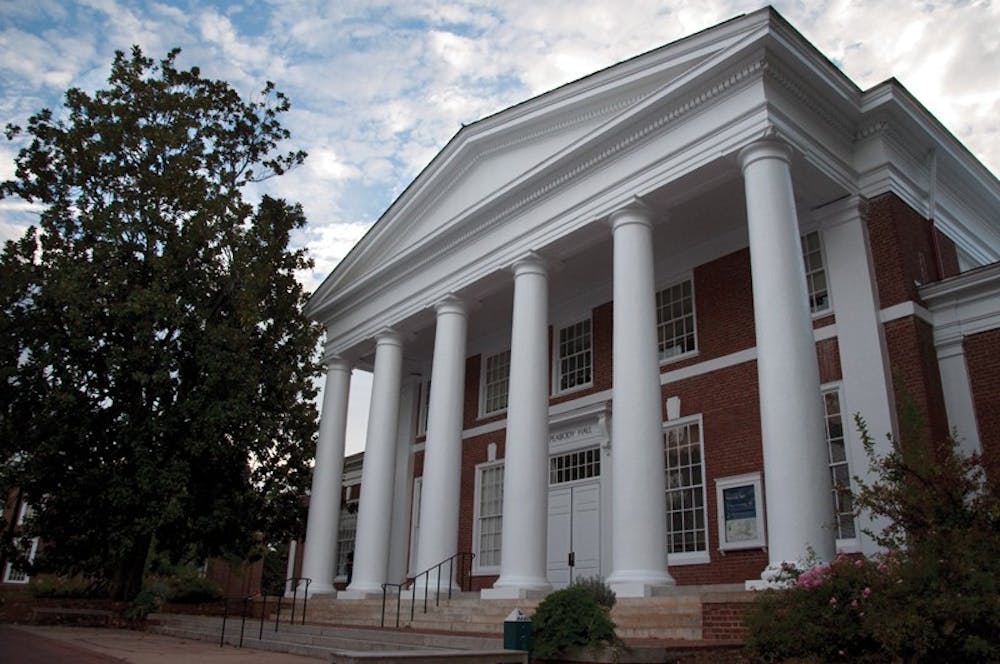By considering economic disparity rather than race as a factor in admissions, colleges and universities can actually become more diverse, according to a report released Wednesday by the Century Foundation, a progressive think tank headquartered in New York.
The University currently uses race-conscious affirmative action when evaluating prospective students, but is reviewing its admissions process in light of an upcoming U.S. Supreme Court case.
The Supreme Court Oct. 10 begins hearing preliminary arguments for Fisher v. University of Texas at Austin. Plaintiff Abigail Fisher claims she was denied admission to UT-Austin because of her race, in violation of the Equal Protection Clause in the 14th amendment to the U.S. Constitution.
Race-conscious affirmative action is commonplace in higher-education admissions, said Richard Kahlenberg, an author of the report and a senior fellow at the Century Foundation. “The long-standing rule [has been] if you can achieve racial diversity without using race that is the preferable alternative,” Kahlenberg said.
The University in its admissions decisions adheres to a 2003 Supreme Court decision that permitted schools to use race as a factor in admissions but banned the application of racial quotas. When reviewing applicants, the University considers race, economic background, interests and experiences, according to a University press statement released Tuesday.
“We consider it a great honor to be entrusted with the mission of selecting students who will shape the future of the University,” Dean of Admission Greg Roberts said in the statement.
The current composition of the Supreme Court is more conservative than in 2003, making it more likely it will eliminate all race-based affirmative action, Politics Prof. David O’Brien said.
Much of the weight of the court’s decision will fall on Justice Anthony Kennedy’s shoulders, O’Brien said. Kennedy’s decision, which O’Brien said will likely be against affirmative action, could either be narrow or expansive. A narrow decision would support a race-neutral program, meaning race would no longer be a factor in admission decisions. A broad decision would eliminate affirmative action altogether.
If the Court eliminates race-conscious affirmative action, universities will still be able to create diverse student bodies, the foundation’s report argues, because diversity can be achieved by focusing on socioeconomic discrepancies rather than racial ones.
The foundation’s report, titled “A Better Affirmative Action: State Universities that Created Alternatives to Racial Preferences,” finds universities that dropped racial preferences in the admissions process were still able to achieve — and sometimes exceed — previous levels of racial diversity. Successful universities include the University of Michigan, University of Washington and UT-Austin.
UT-Austin, for instance, adopted a program that guarantees students in the top 10 percent of any Texas public high school class automatic admission into any public university in Texas. The percentage of black and Hispanic students, combined, rose from 18.6 percent under the old, race-based plan to 21.4 percent under the new, race-neutral program, the study reported.
O’Brien said he would advocate for a flexible admissions policy which encourages diversity at the University.
In a 2010 study, researchers at the foundation found that socioeconomic disparities often factored into the competitiveness of candidates’ applications more than race.
“While it is important for a university to have minority students from a wide variety of backgrounds in order to combat stereotypes, it is poor and working-class students of color, not upper-class students of color, who are missing from the equation,” Kahlenberg said. “Research finds that the obstacles to doing well on standardized tests like the SAT are much more closely related to class than race.”







